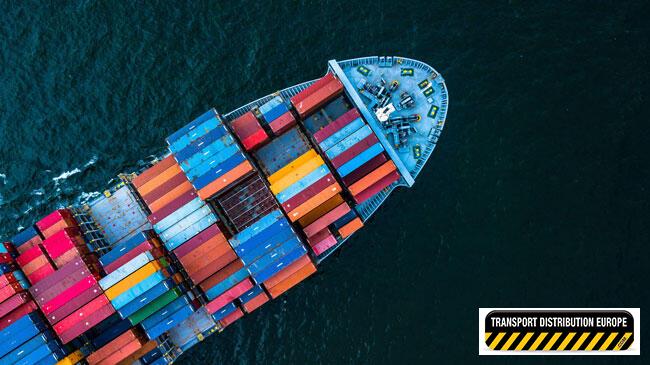Digital sea change for shipping and global supply chains
Aug 31, 2021
By Mohan Naidu, FPT UK Managing Director.
The international shipping industry is responsible for the carriage of around 90% of world trade. In a world governed by signed & stamped cargo, freight documents and where verbal agreements are viewed as firm contracts, shipping is finally moving into the digital age, adopting financial transactions, marine operations, ship maintenance and crew planning systems, underpinned by a reliable global satellite communications infrastructure.
Blockchain, predicted by many, is expected to usher in a new era that will revolutionise the international supply chain, replacing EDI and paper-based systems that have been used for tracking shipments and approvals from customs and port authorities with an efficient and secure distributed electronic ledger. According to the World Economic Forum, blockchain has the potential to improve communications and border administration to the tune of $1 trillion in global trade.

Drowning in a sea of paper
The logistics involved in creating cargo manifests, tracking shipments and sign-offs from customs and port authorities remains largely a paper process. Numerous parties are involved across multiple geographies. Intermediaries are dotted all along the supply chain, including banks, clearing houses, shipbrokers etc. , involved in approving and forwarding documents to the satisfaction of all parties to move transactions and trades. Sales contracts, charter-party agreements, bills of lading, port documents, letters of credit and other paperwork are routinely submitted back and forth.
As the cost and size of the world’s trading ecosystems continue to grow more complex, the cost of the necessary trade documentation to process and administer goods being shipped is expected to take an even greater proportion of transportation costs.
Blockchain could turn the entire process into a paperless paradise, enabling parties to contact each other, carry out physical transactions, exchange and store encrypted information, perform contractual obligations, give and receive instructions and exchange payments.
The blockchain-based smart contract extends the utility of blockchain from a simple record keeper to an automatically implemented multi-party agreement. In a complex and colossal supply chain where a wide range of participants is involved, a smart contract - with agreed terms and conditions by all parties - fosters trust and transparency, reducing laborious effort, operation cost, and human errors.
Blockchain will remove and minimise delays and shorten the time it takes to share and authenticate information and documentation to allow cargo to move efficiently.
For security-critical industries like pharmaceuticals, food, traceability is one of the determinants of a firm's regulatory compliance. For example, European Union regulations mandate firms to trace every ingredient or raw material used throughout their supply chain operations.
Blockchain would allow us to save and track data at each stage of an agri-food supply chain. Suppliers could launch a blockchain adding information about the pesticides and fertilisers involved or machinery used. Producers might insert data about the farming practices exercised or the crop cultivation process. Information about the processing method for each batch could also be included. Moreover, once the information has entered the chain, the data is incorruptible, providing traceable and reliable information to all parties.
Data about storage conditions, shipping details, etc., could also be stored and viewed. This means detailed information about food products are accessible for every party throughout the whole value chain. Consequently, blockchain enables the recording of product information at all phases to ensure perishability, standard hygienic conditions and identify contaminated products in real time.
Open standards
Shipping and logistics giant Maersk and IBM have a joint venture, Tradelens - a blockchain-based electronic shipping system that digitises supply chains and tracks international cargo. China is a critical market to attract importers and exporters and the addition of Unitech Digital - a state-owned Chinese company to the platform could be incredibly significant to the success of Tradelens. Other blockchain platforms are also in the pipeline but being first gives the venture an early advantage.
The blockchain revolution will allow us to exchange information and documents in a fraction of the time. Still, can the shipping industry ever be revolutionised if different blockchain systems are being developed? The EU thinks not, recently issuing a declaration, signed by 24-member states, to support the establishment of EU blockchain standards and solutions.
Some are calling for a ‘true’ open blockchain for the entire shipping and logistics world and a move away from any private or permission-based system that could act as a barrier to others i.e., competitors, from joining.
The Blockchain in Transport Alliance was formed to develop blockchain standards and education for the freight industry and bring together companies with a vested interest in its development. To date, thousands of companies have applied for membership.
For blockchain to be accepted by the masses, it must offer open interconnectivity and a digital ecosystem open to everyone. Regulatory hurdles and agreement on common global standards are challenges that await.
